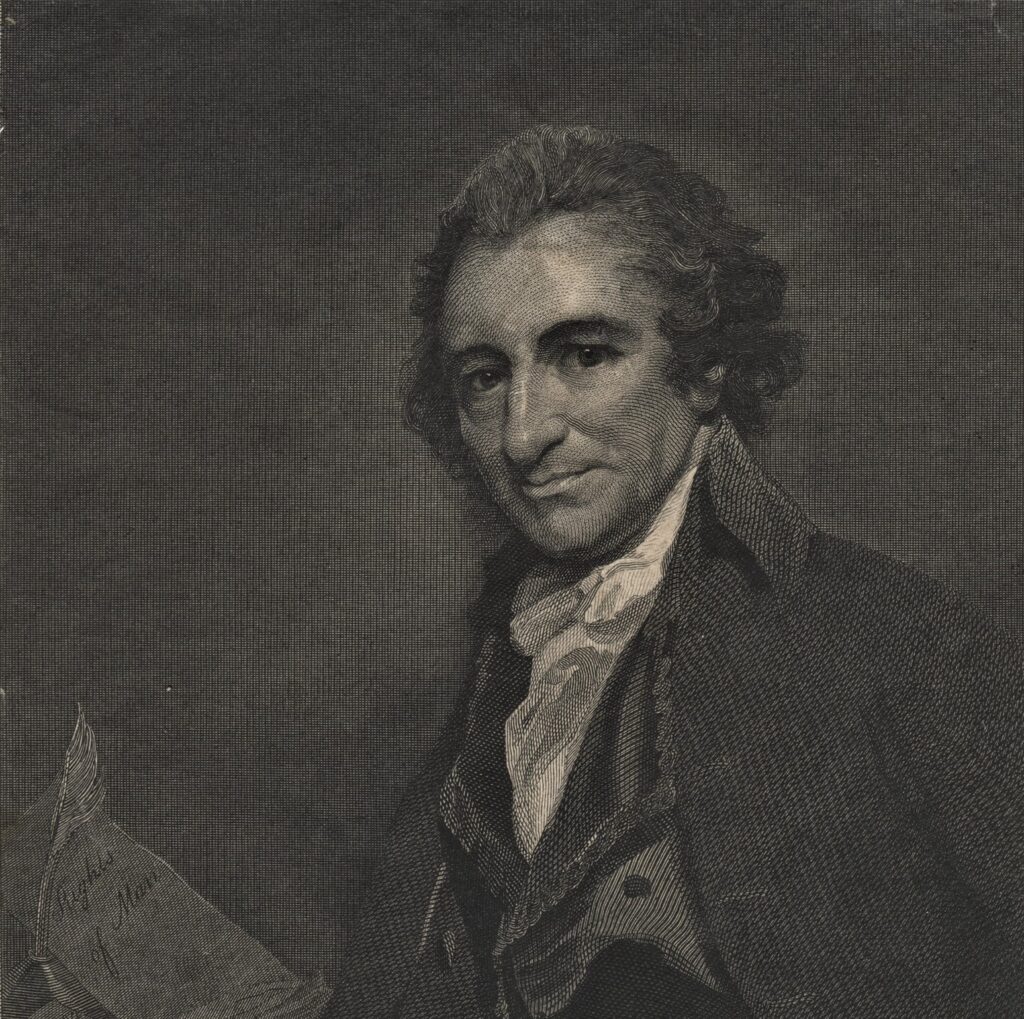Thomas Paine holds a pivotal place in American history. His writing united people around a bold vision, empowering them to believe in self-governance and a government free from tyrannical control. Arriving as a penniless immigrant in November 1774, Paine’s life changed when he published Common Sense in January 1776. This pamphlet helped ignite revolutionary fervor and united the colonists in the pursuit of independence. Paine is even credited with coining the term “United States”.
Paine continued to inspire throughout the Revolution, writing the American Crisis papers, which General Washington ordered read to his troops at critical moments. Emerging research also suggests that Paine may have contributed to the drafting of the Declaration of Independence.


His contribution was critical, but for what happened in Lewes, England, he might never have come to Philadelphia at all. After personal misfortune led him to leave England, he sought a new beginning in the colonies—a decision that would shape the future of an entire nation.
In order to fully understand Paine’s impact, it’s essential to recognize the importance of Lewes, in shaping his ideals. In Lewes, Paine spent six transformative years (1768–1774) before emigrating to America. The town’s independent spirit fostered Paine’s burgeoning political and social consciousness. While living there, he honed his skills in writing and debate, married, ran a business, and engaged in one of the first examples of national unionized action anywhere in the world. Lewes’ culture of questioning authority and resisting oppression provided Paine with fertile ground for developing the ideas that would later inspire the American colonists.
